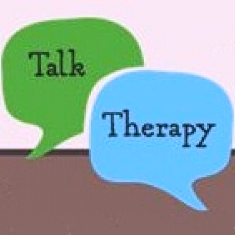Three Questions to Ask a Potential Anxiety Therapist
Finding a therapist to help you with anxiety is easily done by opening the phone book or doing a quick Internet search. The difficult part is finding the right therapist, especially if you aren’t sure what to look for. There are many different types of therapists. Cognitive behavioral therapy (CBT) is the most common type of therapy offered. More important than the type, though, is your personal connection with the therapist.
Not All Anxiety Therapists are Created Equal
The medical treatment of anxiety and the standard therapeutic methods may be the same, but as in many fields, some people just do it better. Not all anxiety therapists are created equal.
 It’s important to note, too, that judging a therapist’s abilities can be subjective. The best therapist to me may not be the best therapist to you. There is a big difference in therapists’ personalities and that goes a long way in how the two of you will interact.
It’s important to note, too, that judging a therapist’s abilities can be subjective. The best therapist to me may not be the best therapist to you. There is a big difference in therapists’ personalities and that goes a long way in how the two of you will interact.
As an example, I like a therapist that is firm, yet approachable. That may sound odd, but it works for me. I want someone who will call me out if I am making excuses, but not in a way that makes me feel bad about myself. On the other hand, I have a friend who likes a therapist who is very strict. She jokes and says she is a looking for an 1850s schoolmarm who will rap her on the knuckles if she doesn’t listen. Neither approach is bad – just different.
Questions to Ask a Potential Anxiety Therapist
There is no sure-fire way to ensure your new therapist will be a perfect fit, but there are some ways to increase your odds. As mentioned above, try to figure out what type of person you most relate to and find the closest match. It doesn’t hurt to ask a few questions in advance to get a feel for that person’s style. Suggested questions:
- How would you describe your therapy style?
- Do you assign homework?
- What is your background?
Based on the answers to those questions, you can get a feel for the therapist’s personality and general style. If everything sounds like it might be a good fit, then make the appointment and keep an open mind. If you don't feel comfortable after the first appointment, tell the therapist "no" when they ask if you'd like to schedule another appointment.
Remember, it takes two people to form a therapeutic relationship. It isn’t just up to the therapist, and much of the work involves you.
You can find Gabe on Facebook, Twitter, Google+, LinkedIn, and his website.
APA Reference
Howard, G.
(2014, December 10). Three Questions to Ask a Potential Anxiety Therapist, HealthyPlace. Retrieved
on 2026, March 5 from https://www.healthyplace.com/blogs/anxiety-schmanxiety/2014/12/three-questions-to-ask-a-potential-anxiety-therapist